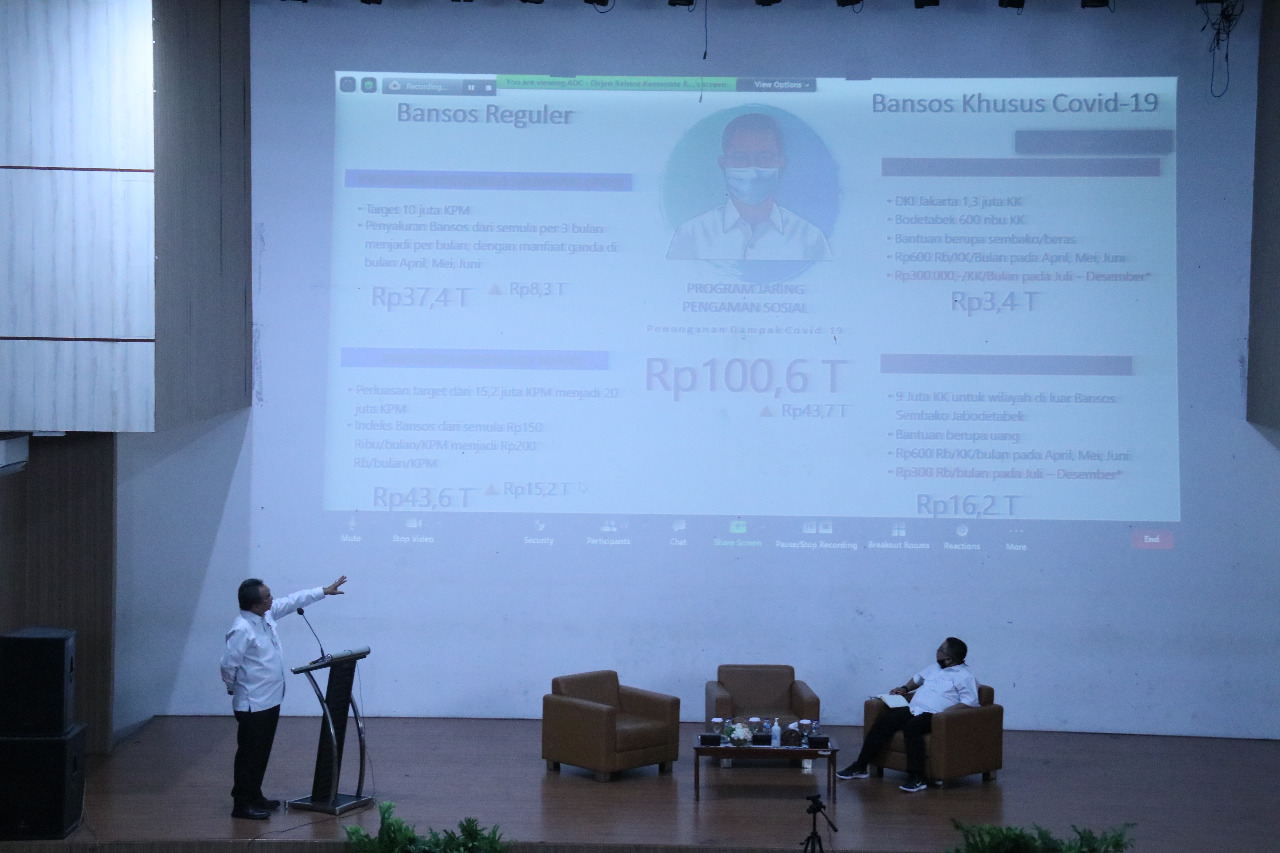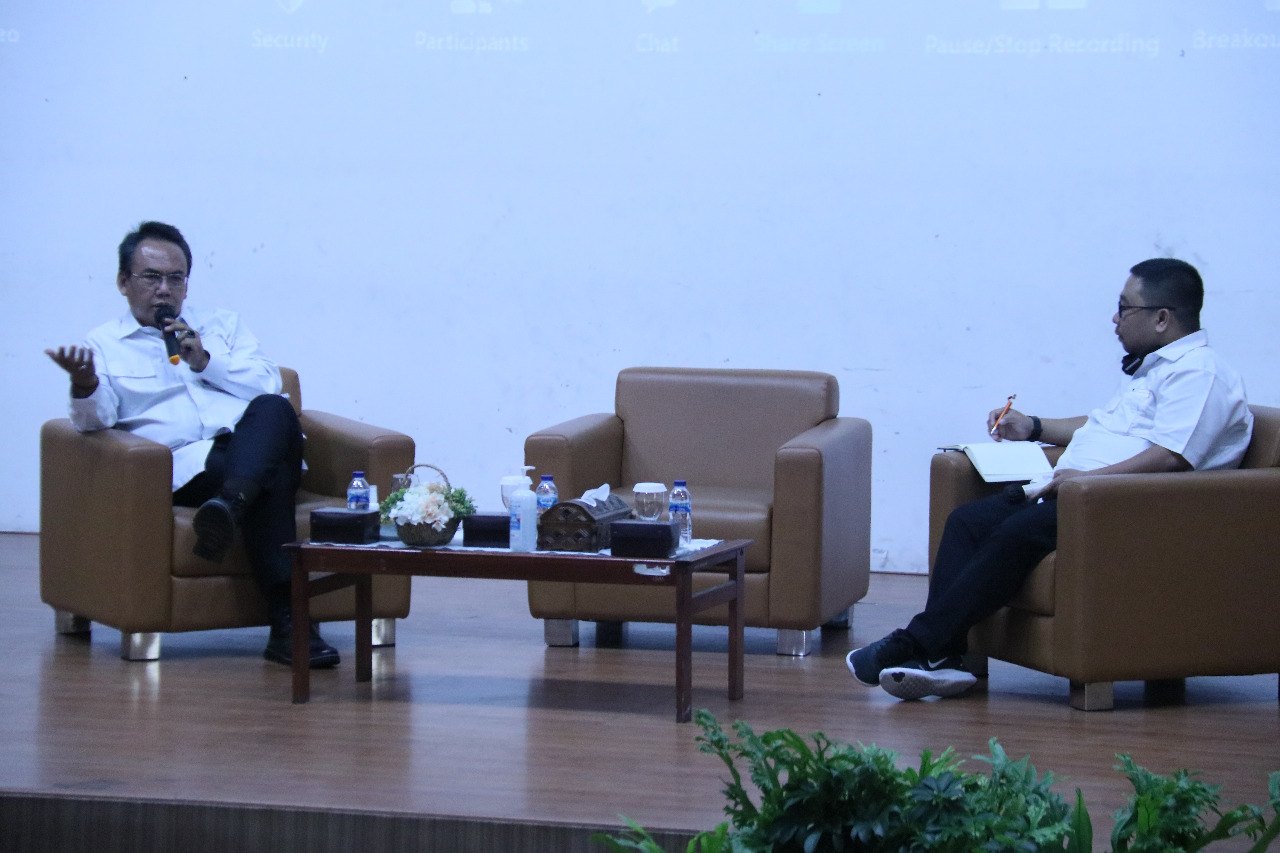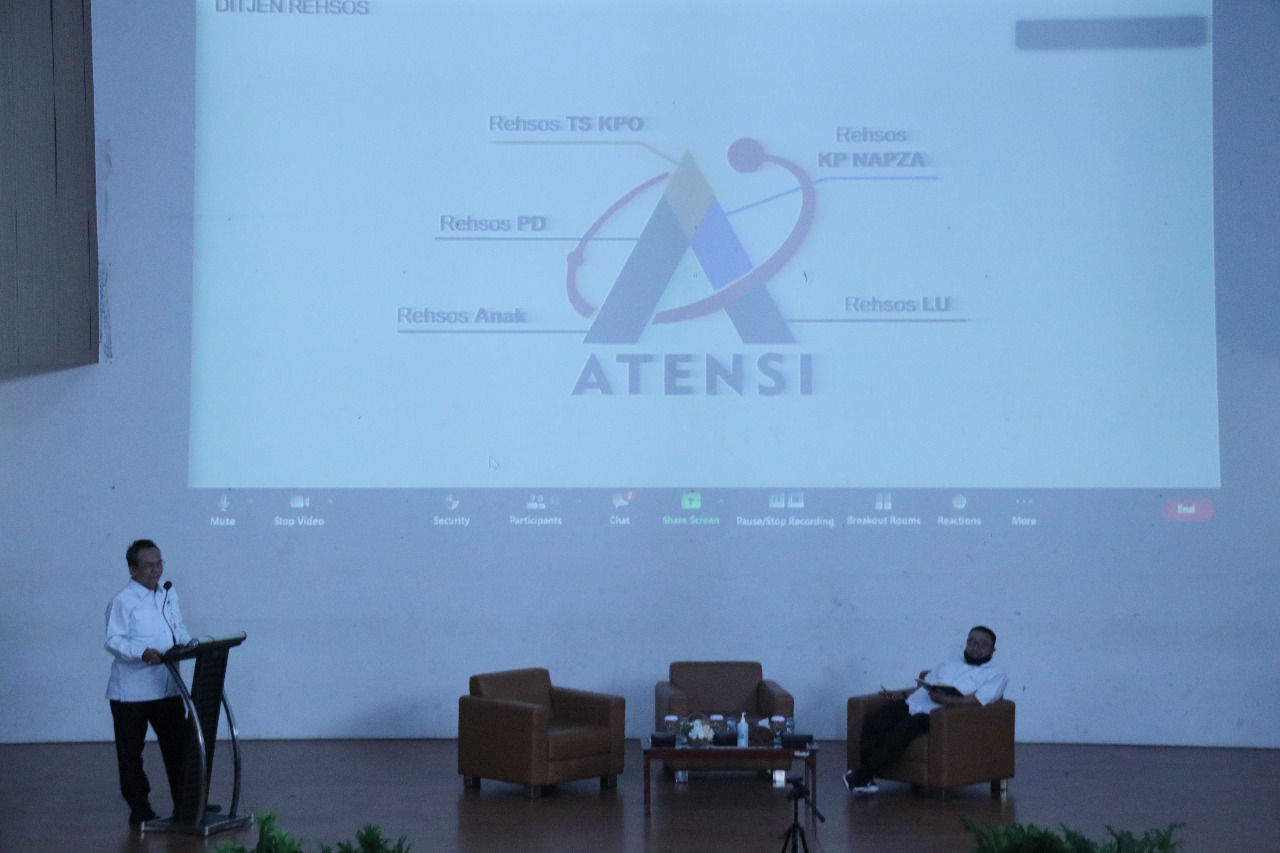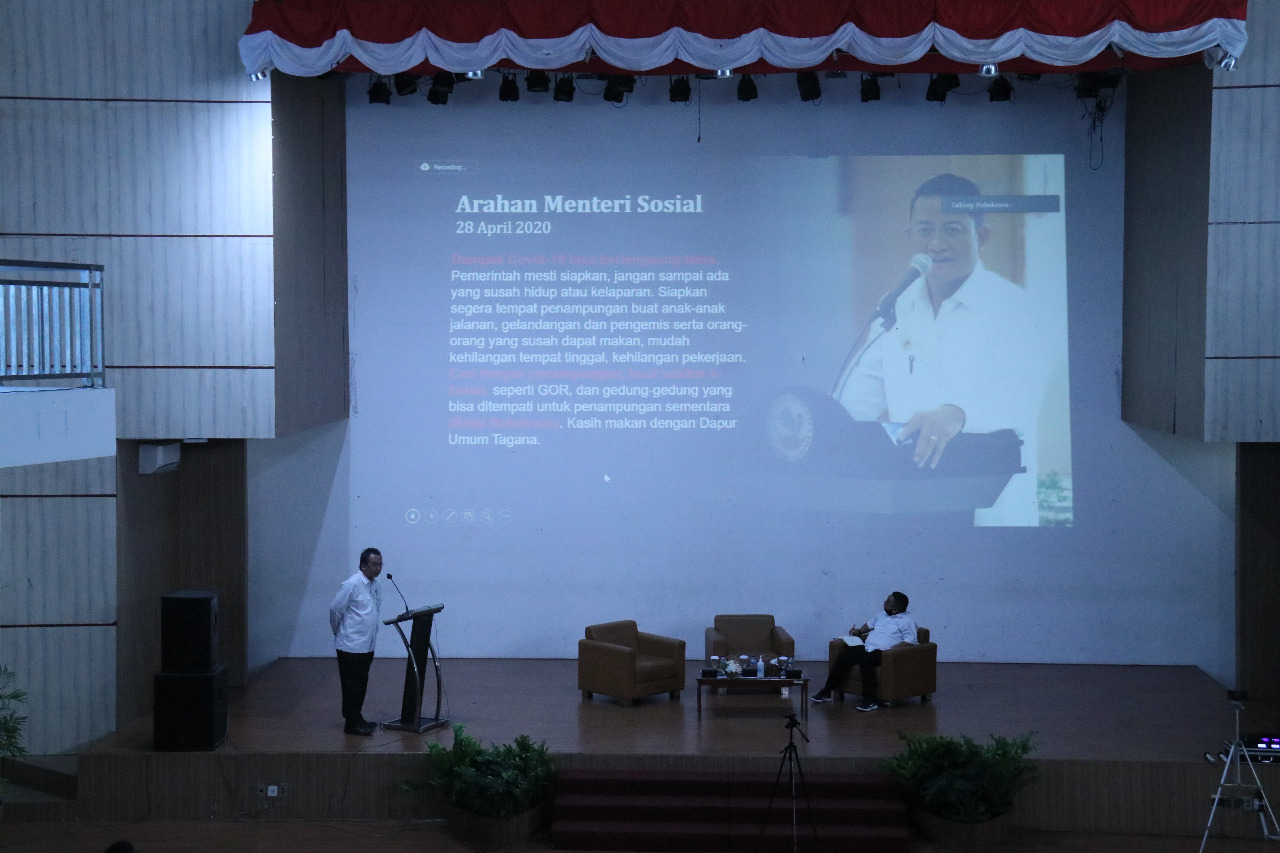BANDUNG (August 10, 2020) - As the organizer of the formulation and implementation of policies in the field of Social Rehabilitation (Rehsos) in accordance with statutory regulations, the Ministry of Social Affairs through the Directorate General of Social Rehabilitation invites the Academic Community of the Social Welfare Polytechnic (Poltekesos) Ministry of Social Affairs to strengthen commitment to constructive cooperation.
"This is the first opportunity to update the latest information on what we want to develop in the future, so that fellow lecturers can be part of the team technical assistance, in line with the strategic needs of each program handled by each Directorate of Social Rehabilitation," said the Director General of Social Rehabilitation, Harry Hikmat in a public lecture on Policy Directions and Programs of the Directorate General of Social Rehabilitation.
This information exchange will inspire the policy and strategy of the Directorate General of Social Rehabilitation, namely the Social Rehabilitation Assistance (ATENSI).
Commitment to constructive cooperation will be carried out in the form of utilizing the hall in the implementation of student practicum, research and lecturer service, conducting a survey on the condition of scavengers after the Large-Scale Social Restrictions (PSBB) in the ATENSI national strategy program for scavengers, and forming an Assistance Team (TA) to help formulate guidelines to campaign/dissemination content.
There are many things that can be
synergized between Poltekesos and the Directorate General of Social Affairs.
"The implementation of institutional-based practicum II is also very
important and Mr. Harry has provided a way for our lecturers and students to
join in the Center’s activities," added Marjuki, Director of Poltekesos
Bandung in his remarks at the General Lecture on Policy Directions and Programs
of the Directorate General of Social Rehabilitation at Poltekesos Bandung.
Departing from the tasks and functions of the Directorate General of Social Welfare in dealing with 22 of the 26 Social Welfare Service Recipient (PPKS), the priority targets show how big the challenges are. "In terms of size, as many as 75.4 people are handled by Directorate General of Social Rehabilitation, ranging from children, disabilities, the elderly, victims of drug abuse and persons with social deviance issues and victims of trafficking in persons," explained the Director General of Social Affairs.
The COVID-19 pandemic has also had an impact on increasing the number of PPKS, such as beggars, scavengers, homeless people and layoff victims in public spaces. Therefore, the Minister of Social Affairs of the Republic of Indonesia, Juliari P. Batubara directed to carry out the Handling of Displaced Residents Affected by COVID-19 (PWTC) by providing Temporary Shelters (TPS) for displaced residents affected by COVID-19.
This TPS functioned to accommodate displaced residents who increased during the implementation of Large-Scale Social Restrictions (PSBB). Those who are in public spaces such as scavengers, homeless people and beggars are poor people who are victims of Termination of Employment (PHK).
To reach such a large number, there needs to be a massive and progressive strategy. ATENSI as the spirit of social rehabilitation activities contains the essence of recovery and capacity development of PPKS who experience social dysfunction. This is done so that PPKS is able to carry out its social functions properly.
The paradigm change social rehabilitation services be the cornerstone of the implementation of ATENSI, which is to realize social services that are integrated, to reach all citizens, a comprehensive and standardized system,promoting the role of families and communities, temporary institutional social service as well as human resources based on professionalism .
Social Rehabilitation Services in the form of ATENSI, the target area consists of meeting basic needs, therapy (physical, mental, spiritual, psychosocial skills/entrepreneurship), social care and family support.
The Directorate General of Social Rehabilitation only focuses on providing social rehabilitation services, so that matters relating to social assistance have become the authority of the Directorate General of Social Protection and Security (Directorate General of Social Security). "This fundamental reconstruction must become a new framework," said the Director General of Social Affairs.
However, in implementing social rehabilitation services, we can confirm whether the PPKS we provide services to have received the Family Hope Program (PKH) or Non-Cash Food Assistance (BPNT) as family support. Because the target of PKH and BPNT in the family is also the subject of the Directorate General of Social Affairs, namely early childhood, school children, pregnant women, persons with disabilities to the elderly, the
Directorate General of Social Affairs is able to provide access to PPKS to receive PKH and Non-Cash Food Assistance (BPNT) starting from revamping the data, integrating PPKS data into the Social Welfare Integrated Data (DTKS) of the Ministry of Social Affairs.
The application of ATENSI has 3 intersecting approaches, namely the family, community and residential (Social Rehabilitation Center/Panti) based approach. The agent for the family-based approach is the Social Welfare Facilitator, while for the community-based approach, the Ministry of Social Affairs partners with the Social Welfare Institution (LKS).
It is different with the-based approach residential, namely Social Rehabilitation Center which is the referral center for PPKS which has a complex social problem. "In other words, Social Rehabilitation Center become a reference for further and temporary treatment, their services are adjusted to the results of the assessment. This will become the trademark for the Ministry of Social Affairs,"Director General of Social Affairs.
The three approaches can be synchronized in the Social Service Center (SERASI), which is a provider of social rehabilitation services for PPKS directly or through LKS. The Balai that will become the pilot project must be multifunctional with comprehensive services.
SERASI piloting will be implemented at Gowa's "Gau Mabaji" Hall,"Satria" Baturaden Hall, Magelang "Antasena" Hall, Bekasi "Pangudi Luhur" Hall, "Prof. Dr. Soeharso" Center Surakarta and Cawang Kencana Building, Jakarta.
"For Balais that are piloting SERASI, they must apply aapproach life cycle, namely accepting PPKS from newborns to the elderly, because the system is multifunctional and has multiple social services," explained the Director General of Social Affairs.
This public lecture which lasted for 2 hours was attended by the Director of Social Rehabilitation, Heads of Social Rehabilitation Centers/Loka, the entire academic community of Poltekesos both online and in person at theAuditorium Poltekesos Bandung.
 English
English
 Bahasa
Bahasa




